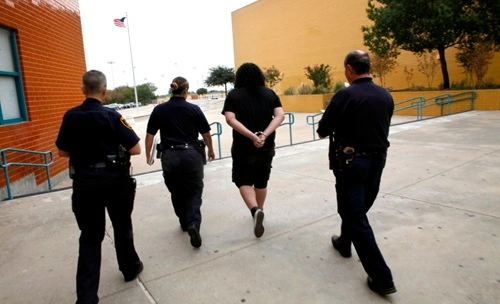In Texas, ensuring your child attends school isn’t just good parenting—it’s the law. Parents are legally responsible for making sure their children go to school regularly. When a student repeatedly skips school without a valid excuse, it’s called truancy. Many Texans wonder: Can a parent actually go to jail for their child’s truancy?
The short answer is yes, it’s possible—but it depends on the circumstances. While Texas has moved away from jailing students for truancy, parents can still face criminal charges, fines, and even jail time if they fail to ensure school attendance. Here’s how the law works.

Understanding Truancy Under Texas Law
Under Texas Education Code § 25.085, all children between the ages of 6 and 19 are required to attend school. Missing school without a valid excuse is considered an unexcused absence, and accumulating too many of these absences triggers legal consequences.
Truancy in Texas generally means a student has:
- 10 or more unexcused absences within a six-month period, or
- 3 or more unexcused absences within a four-week period.
While schools first try to intervene with counseling and attendance plans, chronic truancy can lead to legal action against both the student and the parent.
What Happens to the Student
Prior to 2015, students in Texas could face criminal prosecution and even juvenile detention for truancy. However, that changed when the state passed House Bill 2398, which decriminalized truancy for minors.
Now, students are referred to truancy courts—civil, not criminal—in which judges can order counseling, community service, or attendance programs. Students themselves are no longer jailed simply for skipping school.
But that doesn’t mean parents are off the hook.
Parental Responsibility: The Texas Compulsory Attendance Law
Parents and guardians, under Texas Education Code § 25.093, are legally required to ensure their child attends school. If a parent “fails to require” school attendance, it becomes a Class C misdemeanor—a criminal offense.
This means if your child repeatedly skips school and you don’t take reasonable steps to correct it, you could face criminal prosecution.
Penalties may include:
- A fine of up to $500 per offense.
- Court-ordered parenting classes or community service.
- Jail time if fines or court orders are ignored.
For example, if the court finds that a parent intentionally allowed or encouraged truancy—by not enforcing bedtimes, failing to communicate with the school, or ignoring attendance letters—the judge can impose harsher penalties.
When Jail Becomes a Possibility
While jail is not the first consequence, it becomes a possibility if a parent:
- Fails to pay court-ordered fines, or
- Disobeys a judge’s order, such as skipping court-mandated parenting classes or refusing to cooperate with attendance plans.
In these cases, the court can hold the parent in contempt, which may result in up to 72 hours in jail, depending on the circumstances.
Additionally, if the court determines the parent willfully contributed to the child’s truancy—such as keeping the child home to babysit, work, or simply ignoring school requirements—the parent may face more serious legal consequences.
Schools Must Intervene First
Texas law requires schools to take specific steps before referring a case to court. Schools must:
- Notify parents after the third unexcused absence within four weeks.
- Set up a meeting to discuss attendance problems.
- Implement an attendance improvement plan with both the student and parent.
Only if these interventions fail can the school file a complaint with the local court. This ensures parents aren’t immediately criminalized for isolated or unavoidable absences.
Defenses to Truancy Charges
Parents do have valid defenses against truancy accusations, including:
- The absences were due to illness, family emergency, or religious observance.
- The parent made a genuine effort to ensure attendance but the child refused to go.
- The school failed to properly notify the parent or follow legal procedures.
In such cases, it’s important to gather documentation (doctor’s notes, emails, attendance records) and consult with an education or criminal defense attorney experienced in Texas truancy law.
Final Thoughts
So, can a parent go to jail for truancy in Texas? Yes—but only in extreme or willful cases. Texas no longer jails students for skipping school, but parents who ignore repeated attendance problems, fail to pay fines, or defy court orders can face criminal penalties and even short jail terms.
The state’s goal isn’t to punish families—it’s to get kids back in school. Most truancy cases are resolved through cooperation between parents, schools, and courts.
If your child is missing school frequently, take it seriously. Communicate with teachers, attend meetings, and document your efforts. Preventing truancy not only avoids legal trouble but also helps secure your child’s future.

Our dedicated team gathers information from all the reliable sources to make the law accessible and understandable for everyone. We provide the latest legal news stories from across the country, delivered straight to you.
